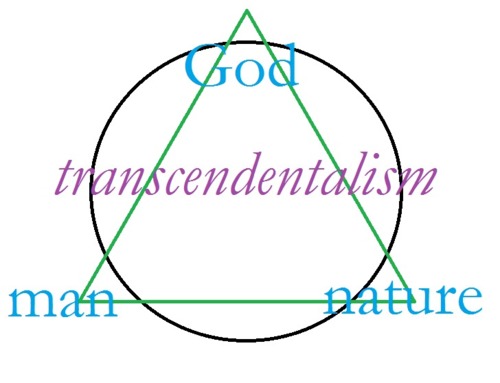Unitarians attempted to modernize religion. They tried combine modern philosophy's emphasis on proof and religion, stating that the accounts of miracles in the Bible proved Christianity was true. This is where Transcendentalism moves away from Unitarianism. Although they agreed with some of their philosophies, they did not think that their would ever be significant evidence for religion.
Emerson once said, "We have no experience of a creator, and therefore we know of none." But the real emphasis of Transcendentalism is human intuition. They believed that inside every human is the voice of God, and because we all have a direct line to God, the institution of church would never be as important as the revelations of the individual. In fact, because of this direct line to God, institutions like organized religion and political parties distracted people from the truth because it tells them how to think. Instead they believed that individuals were most free when self reliant. Humans in nature were "gods in ruin". In essence they believed that all philosophy and religion should be grounded in the nature experiences and beliefs of the individual.


No comments:
Post a Comment
Note: Only a member of this blog may post a comment.